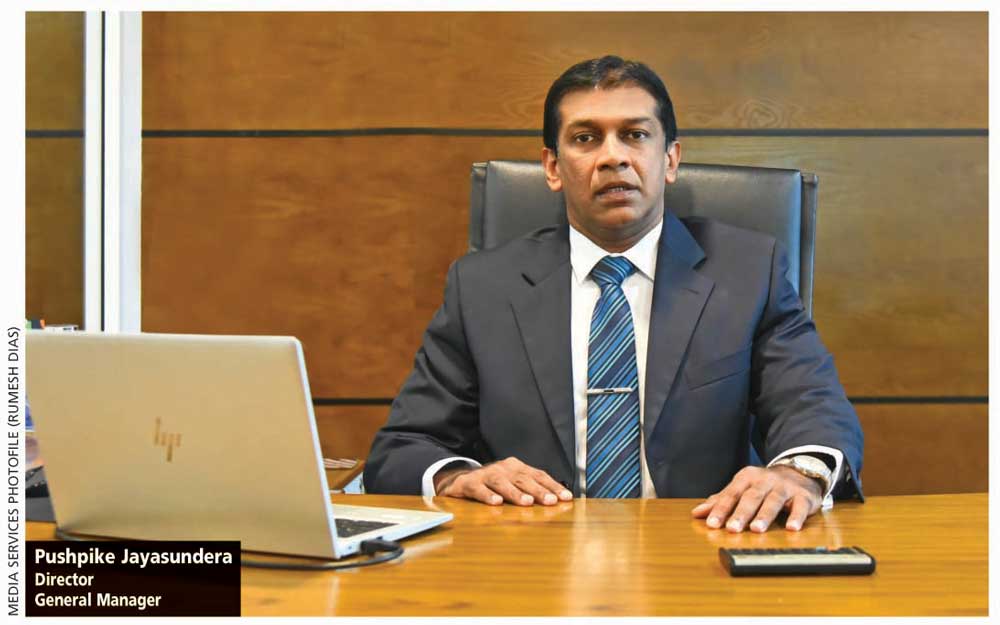CREDIT INFORMATION BUREAU OF SRI LANKA
 Q: Can you provide an overview of the Credit Information Bureau of Sri Lanka’s (CRIB) role and responsibilities as outlined in the Credit Information Bureau of Sri Lanka Act?
Q: Can you provide an overview of the Credit Information Bureau of Sri Lanka’s (CRIB) role and responsibilities as outlined in the Credit Information Bureau of Sri Lanka Act?
A: The Credit Information Bureau was the first credit bureau in the South Asian region, established under the CRIB Act No. 18 of 1990, amended by Act No. 8 of 1995 and 42 of 2008.
CRIB collects, collates and disseminates credit information, enabling the disbursement of loans in a timely and efficient manner to borrowers, and aiding licensed banks and finance companies in making well-informed credit decisions.
But CRIB is never an obstacle for borrowers nor does it blacklist borrowers. On the contrary, it promotes lending, aiming to bridge an information gap between lending institutions and borrowers.
For instance, when a borrower applies for a loan, a lending institution is unaware of his/her credit information. In contrast, these borrowers have comprehensive knowledge about their past credit histories, loan payments/defaults, credit exposures and so on.
Lending institutions are only aware of what borrowers voluntarily disclose to assess the credit risk associated with them in the credit underwriting process. This imbalance in information is referred to as information asymmetry.
Exploiting this asymmetry, borrowers tend to disclose only favourable information, often keeping out details that might work against them. However, for a lending bank to properly assess the risk in a timely manner, such information is crucial. Seeking this information from other banks is not effective and practical.
CRIB plays an important role in this aspect, bridging the information asymmetry by collecting reliable and accurate credit data, and disseminating it in a timely and efficient manner to licensed banks and financial entities, to enable them to grant loans and enhance credit inclusivity in Sri Lanka.
Access to credit stands at between 50 and 52 percent in Sri Lanka, highlighting the imperative for increasing credit inclusivity.
CRIB undergoes a meticulous data validation process, adhering to over a thousand rules and conducting regular data audits. This rigorous approach ensures the accuracy and reliability of the data. Utilising cutting-edge technologies, CRIB maintains compliance with all data protection laws, safeguarding sensitive information effectively.
Over the course of three decades, CRIB has played a crucial role in maintaining financial stability and contributing to the overall resilience of the finance sector. It achieves this by assisting borrowers and lenders in accessing the necessary credit information, thus promoting credit inclusivity.
Q: Could you explain the process for individuals or corporations accessing their credit-related information stored by CRIB?
A: CRIB has launched an advanced platform under the brand name My Ci, enabling individuals and corporations in Sri Lanka to conveniently access their credit reports online.
CRIB offers three primary methods for individuals and corporations to access their credit reports: postal service, walk-in services and online requests through CRIB’s website.
The process involves verifying identity and authenticity, along with a nominal payment made through banks or online platforms. CRIB encourages both individuals and corporates to obtain their CRIB score report (which includes the credit report and score) at least quarterly.
This helps with understanding your credit standing and taking necessary actions for corrections. Doing so can prevent unexpected surprises or disputes as otherwise, individuals and businesses might only learn about their credit status when applying for loans.
CRIB also maintains a dispute resolution process. If individuals or corporations have any disputes regarding their credit information, they can raise them through this process. CRIB promptly analyses the issue and forwards it to the relevant financial institution for correction within a stipulated time frame. And CRIB then follows up on the matter and provides appropriate advice.
It’s important to note that CRIB does not engage in blacklisting individuals or corporations. Instead, it always reaches out to the relevant financial institution for resolution. Ultimately, it is the decision of the financial institution to grant new credit or resolve the issue based on the available financial data.
Q: What measures does CRIB have in place to maintain the confidentiality and integrity of the data it manages?
A: CRIB ensures data security through legislative mandates and technological infrastructure, complying with the CRIB Act and other data protection regulations. It promotes responsible borrowing and lending through educational initiatives.
Q: And what strategies is CRIB implementing to improve credit and risk management practices among shareholder member lending institutions?
A: To address this, CRIB is actively engaged in educational initiatives promoting the benefits of formal credit channels, as well as capturing nontraditional credit data for lenders to assess credit risk to offer formal credit using this.
Additionally, CRIB will engage in providing services on the Secured Transaction Registry, enabling SMEs and MSMEs (micro, small and medium enterprises) to borrow against moveable assets. This initiative aims to enhance credit inclusivity.

Q: What goals and milestones has CRIB set to achieve its vision of becoming a model credit bureau in the South Asian and Asia-Pacific regions by 2025?
A: A pivotal development is the introduction of CRIB credit scoring mechanisms, providing a holistic assessment of individuals’ creditworthiness beyond conventional metrics.
Unlike traditional credit reports, credit scores employ algorithms to analyse multiple data points, offering an evaluation of borrowers’ financial health. This empowers borrowers to proactively manage their credit profiles and enables lenders to expedite lending decisions based on reliable predictive models.
By democratising access to credit information and promoting transparency, CRIB aims to empower individuals and businesses to make informed financial decisions.
CRIB employs a multifaceted approach to advancing financial inclusion and promoting responsible borrowing practices. Key initiatives include awareness campaigns, the widespread adoption of credit scoring and the implementation of advanced analytics tools to facilitate data driven decision making.
Furthermore, CRIB is exploring avenues to enhance cross-border credit information sharing. This initiative aims to enable Sri Lankans to access credit internationally and allows investors to access credit locally, thereby expanding opportunities for the development of credit markets.
Q: How does CRIB collaborate with shareholder members and other stakeholders to achieve its objectives and fulfil its statutory obligations?
A: By embracing cutting-edge technologies such as by providing AI driven analytics, monitoring and alerts, retrospective reports, fraud detection tools and exploring nontraditional data sources, CRIB seeks to enhance the accessibility and reliability of credit information, laying the foundation for a resilient financial ecosystem.
– Compiled by Allaam Ousman
COMPANY DETAILS
Telephone: 2131310 | Email: pushpike@crib.lk | Website: www.crib.lk



